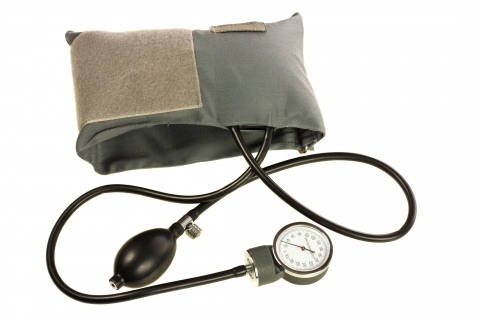Exploring the Myths & Misconceptions of Gastric Bypass, Lap Band & Gastric Sleeve Surgery
 Though the number of bariatric surgeries performed in the United States grew in in recent years to almost 180,000 procedures a year, the number of qualifying patients that actually undergo these life-changing surgeries remains at less than one percent, according to the American Society for Metabolic and Bariatric Surgery (ASMBS). With weight loss surgeries proving themselves to be viable, delivering consistently improved long-term results, they remain vastly under-utilized. With a large portion of our population experiencing the symptoms of obesity, why are so few of us choosing to undergo this type of treatment for obesity? Why would so few patients avoid the prospect of surgery when it means a healthier future? The misconceptions that continue to plague the procedures could reveal that answer.
Though the number of bariatric surgeries performed in the United States grew in in recent years to almost 180,000 procedures a year, the number of qualifying patients that actually undergo these life-changing surgeries remains at less than one percent, according to the American Society for Metabolic and Bariatric Surgery (ASMBS). With weight loss surgeries proving themselves to be viable, delivering consistently improved long-term results, they remain vastly under-utilized. With a large portion of our population experiencing the symptoms of obesity, why are so few of us choosing to undergo this type of treatment for obesity? Why would so few patients avoid the prospect of surgery when it means a healthier future? The misconceptions that continue to plague the procedures could reveal that answer.
Unfortunately, many of those who could benefit from gastric bypass surgery or another form of bariatric surgery never get past the first stage because of these myths. In an effort to eradicate these misconceptions, we’d like to offer the real facts on weight loss surgery.
The most commonly-held myths about gastric surgery include:
MYTH: Bariatric surgery is just another quick fix with short-lasting results
– FACT: Weight loss surgery should never be entered lightly as it is not a cosmetic procedure that promises out-of-the-world results. It is a serious medical procedure that, when treated properly with aftercare and a change in lifestyle, can deliver life-changing (and life-long) results that benefit the patient by providing relief from a variety of symptoms linked to obesity.
MYTH: Weight loss surgeries are extremely dangerous
– FACT: No invasive surgery or medical procedure is without its risks. Complications can arise with gastric bypass, gastric sleeve or Lap-Band surgery, but they don’t occur at any higher rates than other types of surgeries. With the technological innovations made within the last few years, the occurrence of these complications have dropped significantly and healing time, recovery and pain levels have all been minimized. Additionally, Dr. Rosen is an expert in minimally invasive laparoscopic surgery. This means we use very small incisions: smaller cuts, faster healing.
MYTH: Those who undergo these surgeries become malnourished afterward
– FACT: Patients who follow Dr. Rosen’s and Megan’s advice regarding nutrition and meal planning experience little to no issues with nutritional values. Where there is a decrease in the natural absorption of vitamins and minerals, today’s nutritional guidance helps patients lead healthy, balanced and robust lives.
MYTH: Insurance won’t pay for weight loss surgery
– FACT: Though the amount of coverage does change between providers and states, many plans do cover weight loss surgeries now. Before scheduling surgery it is important to know exactly what is covered and what is not. Some insurance providers only pay for surgery for those who meet certain health risk requirements. Others will cover bariatric surgery for those who are medically considered obese. Insurance verification is an important step in your care and we are here to help you.
Before you undergo any serious procedure, educate yourself by doing research and asking your doctor and nutritionist any questions you have. Protect yourself by finding out all the information you can, and hopefully using only reliable and trustworthy sources. As a highly respected bariatric clinic in New York City, we strive to ensure our patient’s complete confidence by fully educating them throughout the process, working to remain as transparent and patient-focused as possible. If you believe you may be a candidate for bariatric surgery, call us now for a confidential and comprehensive consultation. We’d be happy to help you start your own personal path to optimal health and wellness.
[uxi_button link=”2122032146″ new_window=”0″ tel=”1″ class=”button-block button-block-mobile” padding_x=”” padding_y=”” text=”Schedule your FREE Phone Consultation NOW” text_size=”26″ text_size_mobile=”” text_font=”header-font” sub_text=”” sub_text_size=”12″ sub_text_size_mobile=”” sub_text_font=”header-font” icon=”” icon_size=”12″ icon_size_mobile=”” icon_align=””]










